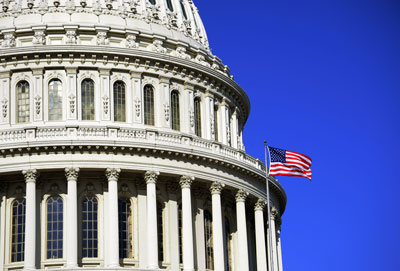The House of Representatives approved a measure yesterday by a wide margin that establishes a consistent and government-wide policy denying taxpayer funds and subsidies for elective abortions.
The bill, H.R. 3, passed by a comfortable 76-vote margin, and it now proceeds to the U.S. Senate, where its prospects are less favorable. If it passes there, it goes to the White House, where the President’s advisors have formally recommended he veto it.
Among the measure’s many virtues as a bellwether of health policy are two of great significance: the subject of the bill—public funding of abortion—has been thoroughly debated for years, and the public mind about abortion funding has been remarkably consistent. In sharp contrast to last year’s hastily devised and debated health care reform, the federal role in abortion funding has been an almost perennial topic of debate in Congress since the introduction of the Hyde Amendment in 1976 by Henry Hyde, the late Congressman from Illinois who became its most eloquent champion.
The core of the issue is whether abortion is itself a form of health care or, in fact, a violation of the highest ethical canons in medicine—to “first, do no harm,” as the Hippocratic Oath is frequently summarized.
After the first introduction of the Hyde Amendment as an addition on the House floor to the annual spending bill for federal health agencies, similar measures have been debated and, over time, made their way into the laws governing the Legal Services Corporation, the federal prison system, the District of Columbia, the Indian Health Service, the Federal Employee Health Benefits Program (FEHBP), and many more.
The amendment governing the FEHBP is particularly significant because it represents the principle that the federal government should not provide subsidies in the form of shared health insurance premium payments for any plan that includes elective abortions. Resistance to these funding amendments has waxed and waned over the years with the changing composition of Congress, but with rare periods when one or more was weakened, the public policy of the United States has been to deny tax payments and subsidies for elective abortion. They could even be considered “taxpayer conscience” provisions for a practice that, as the recent spate of state legislative enactments shows, has not been accepted as good medicine.
In addition to its comprehensive funding provisions, H.R. 3 includes language that rationalizes another area of longtime federal concern regarding abortion, conscience protection for health care institutions and health care practitioners who may be subject to discrimination because of their refusal to perform, pay for, or refer for abortions.
The law would convert another Hyde Amendment—this one offered along with former Congressman Dave Weldon of Florida—that has annually protected individuals and institutions from such discrimination at the hands of federal, state, or local governments that receive direct or indirect federal funding.
Like the Hyde funding amendment, the Hyde–Weldon conscience amendment has needed annual renewal—and though they have typically survived such annual debates unscathed, their vulnerability has never been clearer than it was last year in the Obamacare debacle, where they were sacrificed in the final bill and subjected to a makeshift Presidential executive order. That order’s inadequacy was almost immediately demonstrated last summer when at least two states included elective abortion coverage in their high-risk pool insurance plans.
Today more and more states are exercising their option to ensure that their state insurance exchanges under Obamacare operate like the FEHBP and do not include plans that pay for elective abortions. But this latest patchwork response to Obamacare’s faulty design is, by necessity, a mirror of the annual, bill-specific exercises that have helped bring about today’s array of “taxpayer conscience” measures on abortion funding and conscience.
The best way to cure both of these defects is to enact permanent, comprehensive measures that respect human life and honor the conscience of the American people. H.R. 3 represents a step in that direction, one of many that are needed to provide a real health care solution for America.
Source material can be found at this site.










